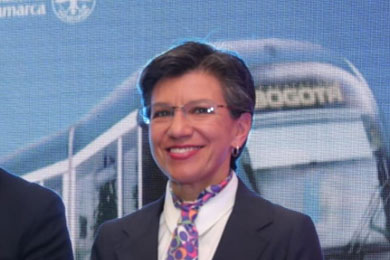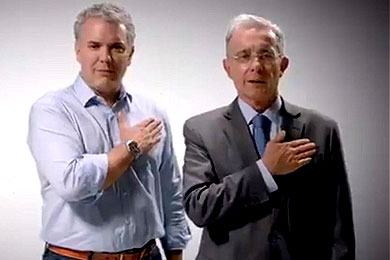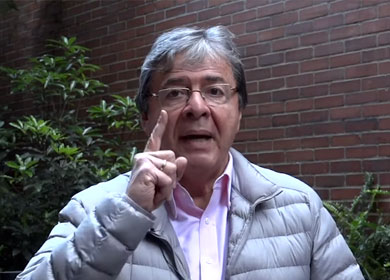In a surprising U turn, Colombia’s acting police chief on Friday asked forgiveness for police brutality while the country’s government vowed measures to prevent an authoritarian state.
The expressed regret by acting National Police director General Gustavo Moreno and the specific reforms put forward by Defense Minister Carlos Holmes Trujillo came days after the brutal killing of an unarmed man by two policemen in Bogota escalated violence between citizens and the police.
Like Trujillo earlier on Friday, Moreno explicitly asked forgiveness for the murder of the 46-year-old Bogota attorney Javier Ordoñez on Wednesday, but failed to acknowledge the murder of nine people and the injuring of 75 people who were being shot by police in an apparent terror campaign.
Bogota mayor wins

Bogota Mayor Claudia Lopez (Image: Twitter)
The apologies are a major concession to Bogota Mayor Claudia Lopez, who had demanded an apology as soon as she learned about Ordoñez death early Wednesday morning.
Until Friday, the authoritarian Trujillo was as fierce to condemn violence that had broken out and had injured more than 190 policemen while seemingly considering all police violence against civilians legitimate.
Lopez got the upper hand on Friday when she found that police had disobeyed her orders and powerful opposition Senator Gustavo Petro accused President Ivan Duque of using the police for “staging a coup” against the Bogota mayor and justifying lethal force to quell any protest.
By then, Inspector General Fernando Carrillo had already opened an investigation into the homicide of the lawyer and announced he would investigate the apparent rogue police terror plot too.
Once the president found himself accused of terrorism and abusing his power to undermine Lopez, a critic and the second-most powerful public official in Colombia, Duque eagerly agreed to meet with Lopez.
Shortly after, the defense minister came with specific police reform Lopez also had demanded to curb the systematic abuse of power by police.
Police reform proposals
- Framework Policy for Coexistence and Public Safety
This reform would seek to optimize police service to citizens and empower regions where police presence is weak. - Education and training
This reform would involve the United Nations and the government’s human rights office to improve education in training that would seek the promotion and protection of human rights and the prevent violations. - Transparency and integrity
This reform would seek good practices in foreign police forces and, with the help of the human rights office, revise current police protocol. - Human resources
This reform would seek to improve the general well-being and quality of life of cops. - Technological improvement
This reform would seek to optimize police officers’ access to information that would allow them to provide a better service to citizens.
Progress or no regression?

President Ivan Duque (L) and his political patron Alvaro Uribe. (Image: Democratic Center)
The reforms may not be revolutionary, but they seem to reverse the Duque administration’s increasingly brazen attempts to cater to the most reactionary wing of the ruling Democratic Center party.
Duque’s far-right party has become increasingly radicalized and, especially after party chief Alvaro Uribe was placed under house arrest on fraud and bribery charges, saw no gain in the rule of law but the rule of whoever is in power.
Furthermore, the party is closely tied to organized crime, and the now-defunct Medellin Cartel in particular, and has historically been able to simply legalizing whatever organized crime racket they were involved in while weakening whatever human right was in their way.
Cleverly adapting themselves to whatever was the popular rhetoric in Washington, the Uribistas have increasingly tried to criminalize political opposition or criticism.
This had led to increasing tensions not just between the “Uribistas” and other parties in Congress, but the executive branch and other government branch and, last but not least, Colombia’s notoriously corrupt police and citizens.
The right to be a reactionary
Trujillo, whose father was an associate of Pablo Escobar and whose brother was kicked out of politics for corruption, has always lived of Colombians’ tax payers money without once holding an honest job.
Any form of opposition to the caste system that prevents the notoriously inept defense minister from filing for unemployment benefits is criminal or part of some criminal conspiracy, according to Trujillo.
While ignoring evidence of organized police terror, the defense ministry insisted that the protests that erupted after the latest police killings were “a systematic and organized.”
The way in which these vandalistic and violent acts occurred shows that it is not a spontaneous action, but a systematic and organized one.



